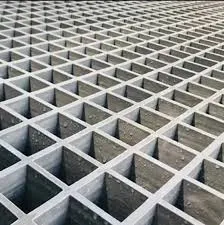
-
 Afrikaans
Afrikaans -
 Albanian
Albanian -
 Amharic
Amharic -
 Arabic
Arabic -
 Armenian
Armenian -
 Azerbaijani
Azerbaijani -
 Basque
Basque -
 Belarusian
Belarusian -
 Bengali
Bengali -
 Bosnian
Bosnian -
 Bulgarian
Bulgarian -
 Catalan
Catalan -
 Cebuano
Cebuano -
 China
China -
 China (Taiwan)
China (Taiwan) -
 Corsican
Corsican -
 Croatian
Croatian -
 Czech
Czech -
 Danish
Danish -
 Dutch
Dutch -
 English
English -
 Esperanto
Esperanto -
 Estonian
Estonian -
 Finnish
Finnish -
 French
French -
 Frisian
Frisian -
 Galician
Galician -
 Georgian
Georgian -
 German
German -
 Greek
Greek -
 Gujarati
Gujarati -
 Haitian Creole
Haitian Creole -
 hausa
hausa -
 hawaiian
hawaiian -
 Hebrew
Hebrew -
 Hindi
Hindi -
 Miao
Miao -
 Hungarian
Hungarian -
 Icelandic
Icelandic -
 igbo
igbo -
 Indonesian
Indonesian -
 irish
irish -
 Italian
Italian -
 Japanese
Japanese -
 Javanese
Javanese -
 Kannada
Kannada -
 kazakh
kazakh -
 Khmer
Khmer -
 Rwandese
Rwandese -
 Korean
Korean -
 Kurdish
Kurdish -
 Kyrgyz
Kyrgyz -
 Lao
Lao -
 Latin
Latin -
 Latvian
Latvian -
 Lithuanian
Lithuanian -
 Luxembourgish
Luxembourgish -
 Macedonian
Macedonian -
 Malgashi
Malgashi -
 Malay
Malay -
 Malayalam
Malayalam -
 Maltese
Maltese -
 Maori
Maori -
 Marathi
Marathi -
 Mongolian
Mongolian -
 Myanmar
Myanmar -
 Nepali
Nepali -
 Norwegian
Norwegian -
 Norwegian
Norwegian -
 Occitan
Occitan -
 Pashto
Pashto -
 Persian
Persian -
 Polish
Polish -
 Portuguese
Portuguese -
 Punjabi
Punjabi -
 Romanian
Romanian -
 Russian
Russian -
 Samoan
Samoan -
 Scottish Gaelic
Scottish Gaelic -
 Serbian
Serbian -
 Sesotho
Sesotho -
 Shona
Shona -
 Sindhi
Sindhi -
 Sinhala
Sinhala -
 Slovak
Slovak -
 Slovenian
Slovenian -
 Somali
Somali -
 Spanish
Spanish -
 Sundanese
Sundanese -
 Swahili
Swahili -
 Swedish
Swedish -
 Tagalog
Tagalog -
 Tajik
Tajik -
 Tamil
Tamil -
 Tatar
Tatar -
 Telugu
Telugu -
 Thai
Thai -
 Turkish
Turkish -
 Turkmen
Turkmen -
 Ukrainian
Ukrainian -
 Urdu
Urdu -
 Uighur
Uighur -
 Uzbek
Uzbek -
 Vietnamese
Vietnamese -
 Welsh
Welsh -
 Bantu
Bantu -
 Yiddish
Yiddish -
 Yoruba
Yoruba -
 Zulu
Zulu
frp insulated storage vessel
FRP Insulated Storage Vessel A Sustainable Solution for Modern Industries
In the quest for sustainable and efficient storage solutions, the use of Fiber Reinforced Polymer (FRP) insulated storage vessels has emerged as a game-changer in various industrial applications. These advanced vessels combine the unique properties of FRP with superior insulation capabilities, making them an ideal choice for storing liquids, gases, and other materials under varying environmental conditions.
What is FRP?
Fiber Reinforced Polymer (FRP) is a composite material made from a polymer matrix reinforced with fibers, such as glass or carbon. The combination of these materials results in a lightweight, strong, and corrosion-resistant product. FRP has gained popularity in various industries, including chemical processing, food and beverage, water treatment, and waste management.
Insulation Properties
One of the standout features of FRP insulated storage vessels is their excellent thermal insulation properties. Traditional storage tanks are often prone to heat transfer, leading to temperature fluctuations that can affect the quality of the stored contents. In contrast, FRP insulated vessels maintain a stable temperature and minimize heat loss, making them particularly beneficial for temperature-sensitive materials.
Energy Efficiency
In today’s fast-paced industrial environment, energy efficiency is a top priority. FRP insulated storage vessels not only reduce energy consumption associated with heating and cooling systems but also contribute to lower operational costs. By maintaining the ideal temperature of stored materials, these vessels allow for more efficient processing and use of energy resources.
frp insulated storage vessel

Corrosion Resistance
Corrosion is a significant concern for many industries, particularly when it comes to storing aggressive chemicals or substances. FRP’s resistance to corrosive environments ensures a longer lifespan for storage vessels, leading to reduced maintenance costs and increased safety. This durability makes FRP a suitable choice for applications in highly corrosive environments, such as chemical manufacturing and wastewater treatment.
Customization and Versatility
FRP insulated storage vessels can be tailored to meet specific storage needs. They can be designed in various shapes and sizes, enabling companies to optimize their storage space according to operational requirements. Additionally, the customizable nature of FRP allows manufacturers to produce vessels that can withstand specific pressures and temperatures, further enhancing their versatility.
Environmental Benefits
In an increasingly eco-conscious world, the environmental impact of industrial operations is under scrutiny. FRP insulated storage vessels contribute to sustainability efforts by reducing energy consumption, minimizing waste, and decreasing the carbon footprint associated with traditional storage solutions. Moreover, FRP is recyclable, aligning with waste reduction goals and promoting a circular economy.
Conclusion
As industries strive for greater efficiency, sustainability, and safety, FRP insulated storage vessels stand out as a promising solution. Their exceptional insulation properties, energy efficiency, corrosion resistance, and versatility make them ideal for a wide range of applications. As technology advances and the demand for innovative storage solutions grows, FRP continues to pave the way for a more sustainable and efficient future in industrial storage. By embracing these modern vessels, companies can not only enhance their operational performance but also contribute positively to environmental conservation.









